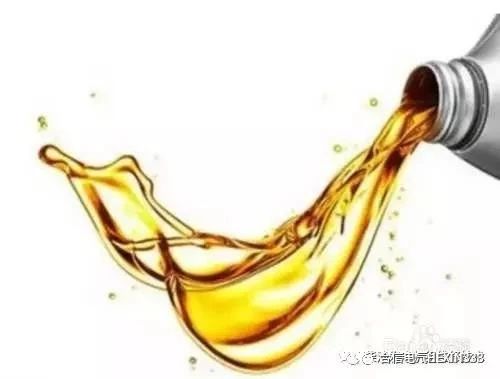
Motor oil is very important, so be careful not to let it go bad!
Motor oil (fully synthetic, semi-synthetic, mineral oil) typically has a shelf life of 4–5 years. The primary causes of contamination and degradation of stored motor oil are exposure to moisture, oxygen, and impurities in the air. Therefore, opened motor oil must be stored in a sealed container. Generally, the storage period for opened motor oil varies by type: mineral oil can be stored for up to 6 months without issues; semi-synthetic oil can be stored for up to 9 months; and fully synthetic oil can be stored for up to 12 months or even longer. Regardless of the type, this period is sufficient to last until the next engine maintenance.

When engine oil deteriorates, it turns a deep black color, produces excessive foam, and exhibits signs of emulsification. When rubbed between the fingers, it lacks viscosity, feels gritty, or emits an unpleasant odor. When dropped onto white filter paper, it appears deep brown with no yellow absorption zone or numerous black spots. If not replaced promptly, it can accelerate component wear, shorten service life, and even lead to safety incidents. Therefore, regularly checking whether the lubricating oil has deteriorated and promptly replacing it with fresh oil is of great importance.
How long does it take for engine oil to deteriorate in the engine? Most people may not know how to answer this question. Below, we will analyze the role of engine oil and the causes of its deterioration to help you determine whether the oil has deteriorated.
I. The role of engine oil
When the engine lubrication system is functioning normally, engine oil continuously circulates within the engine, providing forced lubrication to all moving friction surfaces and removing debris and friction heat from these surfaces. By effectively splashing onto the cylinder walls, it ensures the sealing and lubrication functions of the piston rings and cylinder walls under high-temperature and high-pressure conditions.
II. Causes of engine oil degradation
Centrifugal oil filters and full-flow paper oil filters commonly used in engines effectively maintain the quality of engine oil. However, as engine operating time increases, the filtering capacity of the oil filter gradually decreases, leading to an accumulation of unburned fuel, water, combustion byproducts (such as carbon deposits and soot), oxidation byproducts of the lubricant (resins, asphalt, various acids, etc.), sand particles, dust, and particles from the wear of black and non-ferrous metals.
Resin deposits in the combustion chamber and on the piston crown can form carbon deposits, leading to abnormal combustion in the engine; resin deposits on the piston rings and valve stems can cause these components to seize and stick, exacerbating wear on various engine parts.
The main causes of engine oil degradation during use are as follows:
① Deposition of metal particles generated by component friction;
② Varnish, deposits, gum, and carbon deposits formed by high-temperature oxidation during combustion;
③ Dust entering the engine oil from external sources;
④ Acidic substances generated during combustion;
⑤ Blocked crankcase ventilation system, poor engine oil cooling, and natural formation of gum due to heat;
⑥ Unvaporized gasoline from an overly rich fuel mixture mixing into the engine oil; and coolant from the water jacket leaking into the engine oil, etc.
Damage to the cylinder head gasket or other causes leading to water ingress into the cylinder block or crankcase. When the water content exceeds 0.1%, the antioxidants, detergents, and dispersants added to the engine oil become ineffective, thereby accelerating the oxidation process of the engine oil. When the oil contains a significant amount of water, its lubricating properties deteriorate, viscosity decreases, and the oil film's anti-friction effectiveness is reduced. This can lead to premature oil degradation and component rusting in mild cases, and severe mechanical failures such as engine seizure or bearing failure in severe cases.
⑦ Inadequate combustion chamber sealing
If piston rings or cylinder wear goes unnoticed, fuel may continuously enter the crankcase and come into contact with the oil. Prolonged exposure to high temperatures causes the oil to degrade, its viscosity to decrease, and its ability to form an oil film to deteriorate. As a result, the lubrication and sealing effect of the oil film on the piston rings and cylinder walls gradually deteriorates, increasing friction between the piston rings and cylinder walls. Over time, each time the piston completes a cycle, the frequency of high-temperature flames entering the crankcase increases, creating a vicious cycle that ultimately leads to lubrication failure in the crankcase and issues such as bearing seizure.
⑧ Failure to change engine oil for an extended period
Causes of engine oil degradation during storage
① Moisture
Under normal conditions, the moisture content in engine oil is below 0.03%. When the moisture content exceeds 0.1%, the additives in the engine oil (such as antioxidants and detergent-dispersants) become ineffective, accelerating the oxidation process of the engine oil. The organic acids generated by oil oxidation react with acidic oxides in engine exhaust gases and water to form inorganic acids. These acidic substances increase corrosion on the engine. Therefore, when oil contains a significant amount of water, its lubricating properties deteriorate, viscosity decreases, and in mild cases, this leads to premature oil degradation and component rusting; in severe cases, it can cause engine seizure, bearing failure, and other serious mechanical accidents.
② Oxygen
Engine oil is composed of base oil and additives. While base oil is generally stable, the additives in engine oil, which play a crucial role, are much less stable. They easily react with oxygen in the air, especially under sunlight, causing the additives to degrade and significantly reducing the engine oil's antioxidant properties, cleaning ability, and other characteristics.
③ Impurities
Impurities primarily affect the cleanliness of engine oil. When impurities mix with engine oil, they impair its lubricating effectiveness, potentially causing abnormal engine wear and affecting its sealing performance.
III. Determining Oil Deterioration
I. Observing the Color of the Oil
Light Inspection Method
On a sunny day, use a screwdriver to lift the lubricating oil at a 45-degree angle to the horizontal plane. Compare it to sunlight and observe the oil droplets. Under sunlight, if no wear particles are visible in the lubricating oil, it is in good condition and can continue to be used. If

1. Deposition ring:
The center of the spot is where coarse particle impurities in the oil accumulate. The degree of oil contamination can be roughly judged by the depth of the deposition ring's color.
2. Diffusion ring:
The ring band surrounding the deposition ring is called the diffusion ring. It is the trace left by fine particle impurities suspended in the oil as they diffuse outward. The finer the particles, the farther they diffuse. The width and uniformity of the diffusion ring's color are important factors, as they indicate the oil's additives' ability to disperse contaminants.
3. Oil Ring:
The oil ring surrounding the diffusion ring ranges in color from light yellow to reddish-brown, indicating the oil's oxidation level.
Four grades of oil quality are determined based on the color of the oil spreading on the test paper:
Grade 1: There is no clear boundary between the deposit zone and the diffusion zone of the oil stain, the entire oil stain has a uniform color, the oil ring is light and bright, and the oil quality is good.
Grade 2: The deposit ring is dark, the diffusion ring is wide, there is a clear boundary line, the oil ring is yellow of varying depths, the oil is contaminated, but the oil is still usable.
Grade 3: The deposit ring is deep black, with dense deposits, a narrow diffusion ring, and a darker oil ring color, indicating that the oil quality has deteriorated.
Grade 4: Only the central deposit ring and oil ring are present, with no diffusion ring. The deposit ring is pitch-black with dense and thick deposits that are difficult to dry, and the oil ring is deep yellow and light brown, indicating that the oil has oxidized and deteriorated.
II. Observe the oil flow
Slowly pour the oil-filled measuring cup into another empty cup and observe the flow. High-quality oil should flow in a thin, even, continuous stream; degraded oil will form droplets.
III. No foreign particles should be felt by hand
Rub the engine oil between your thumb and index finger. The sensation should be smooth, with no abrasive particles or friction. If you feel a gritty sensation between your fingers, it indicates the presence of iron filings, sludge, or impurities in the oil.
4. The oil should be transparent and free of foreign objects
On a sunny day or in a well-lit area, use an oil dipstick or oil level gauge to lift the oil and observe the oil droplets under sunlight. If no abrasive particles are visible under light, the oil can continue to be used; if there are excessive abrasive particles, the oil has degraded and should not be used further.
5. No unusual odor
Any engine oil with a strong odor or unpleasant smell is degraded or low-quality oil. Good engine oil should have no distinctive odor and only a slight aromatic scent.
In summary: Engine oil should be replaced at least once a year. If you are unsure about this, you can contact 13980009306 for on-site inspection services.
 Breaking News: 3000kW High-Voltage Resistive-Capacitive Load
Breaking News: 3000kW High-Voltage Resistive-Capacitive Load
 Sichuan Hexin Diesel Generator Sets Achieve Breakthrough in
Sichuan Hexin Diesel Generator Sets Achieve Breakthrough in
 Sichuan Hexin diesel generator sets successfully enter the V
Sichuan Hexin diesel generator sets successfully enter the V

